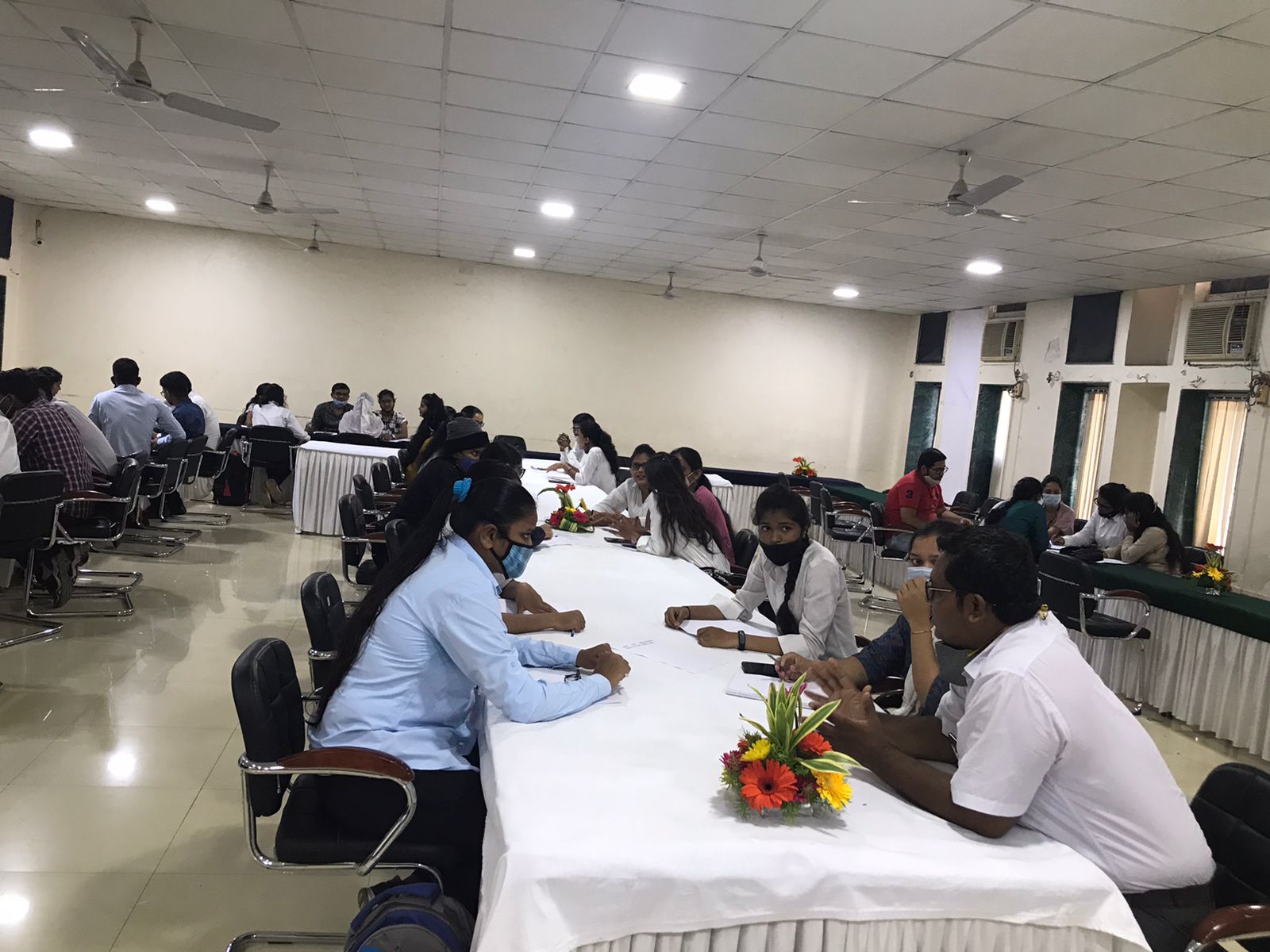*Inclusion is not tolerance, it is unquestioned acceptance of diversity and making the diversity work*
Three full days of learning, unlearning and relearning.
Attended an extremely enriching and insightful Faculty- in service training program on ‘Inclusive education’. Well equipped with skills and strategies to deal with physical and intellectual disabilities …returning with a commitment to make my campus integrative and inclusive of students/ persons with disability.

It’s rare these days to have a very well structured, participatory and enaging training porgrams in academics. The campus and hospitality of Maharashtra State Faculty Development Academy (MSFDA) was warm and comfortable. And the resource persons from Xavier’s resource center for visually challanged (XRCVC) are facilitators one would dream of having as acadmicians. Look forward to the follow up sessions and collaborations in future. Events like these resinstates ones faith in the power of a ‘teacher and her classroom’
Above are the words of Khevana Desai, Assistant Professor, Sociology, Mithibai College, Mumbai, one of the 24 college teachers who participated in a three-day training organised by the Maharashtra State Faculty Development Academy (MSFDA) in collaboration with Xavier’s resource center for visually challanged (XRCVC), Xavier’s college. These teachers, representing 12 different colleges across Maharashtra, included 14 female teachers and 10 male teachers.

The National Education Policy, 2020 envisions increased access, equity and inclusion in higher education by creating greater opportunities. MSFDA is a Section 8 company established by the Government of Maharashtra to build capacities of college teachers and other stakeholders. It has ‘Inclusion and Diversity’ as a cross-cutting non-negotiable principle. It focuses on sensitizing faculty and building their comprehensive understanding towards this aspect and also providing them with appropriate frameworks to implement this in their respective institutions.
XRCVC is an advocacy, training and resource centre at Xavier’s college, Mumbai. Established by Sam Taraporevalla, a retired Professor of Sociology, who is himself visually challenged, the centre has grown stronger over the last two decades in its work. Building on the principles of inclusive education laid in the Rights of Persons with Disabilities Act, 2016, XRCVC not only caters to inclusive education for its own students, but also supports other educational institutes through training and mentoring.
MSFDA from the beginning has been in search of ideas and partners to deliver meaningful trainings that promote inclusion and diversity. For trainings in disability and inclusion, MSFDA visited XRCVC and also held discussions with a number of other organisations working in specific fields of disability. An MoU was signed with XRCVC to impart both orientation trainings to newly inducted teachers as well as thematic training to teachers. A five-day thematic training in blended mode – three-day offline followed by two days of online refresher training – was started.
The training centred around sensitisation of physical and neuro-development disabilities, rights and legal frameworks for persons with disabilities, understanding inclusion, emotions Vs. facts, understanding assistive technologies, taking inclusion to the classroom and inclusive education. The methodology of training was experiential, participatory and engaging, making one of the participants remark – “the training is getting over and still none of us is in a rush to go back !” The resource persons for the training included Sam Taraporewalla, Neha, Poonam Deokar and Shizanne D’mell.
Here are some of the learnings as recounted by the participants.
‘ Although we knew the subject in bits and pieces .. but there was always a mind-block when it came to doing something…as we considered it (inclusive education) a special task …the training here made us realise that it is very simple to ‘include’ by adopting slight modifications in our teaching. The training made us sensitive not only to the ‘visible’ disabilities but also made us realise the feelings that a disabled person may have.. and thus changed our mindset. It has given us confidence to now do more ..’ It was discussed that initiatives by teachers and colleges would attract more disabled children into higher education.
The participants felt that students should also be exposed to such trainings, as friends and peers are much closer to disabled students. Recorded lectures could be a means to reach out to larger number of participants. Prioritising such trainings in colleges from rural areas and starting these trainings from schools were some other suggestions.
Sam guided that there has to be a 360-degree approach for implementing inclusive education – and the process involves not only awareness and training but also availability of relevant assistive technologies and dedicated human resources. In order to drive this – a ‘buy-in’ by the top college management is essential. He cites it as one of the critical factors responsible for success of XRCVC. Dr Shinde, Principal of Xavier’s college has extended his undaunting support to the Centre.
The participants go back to their colleges to implement these learnings in their classrooms. Some want to establish proper ‘cells’ to focus on this aspect. Two further follow-up trainings during the year are lined up to hand hold them.
The process is long and the scale huge. A beginning has been made.


This news is not just inspiring but also very touching. I salute MSFDA’s initiative in reaching out to XRCVC for launching this special training of teachers to sensitize them as well as equipping them with skills and strategies to deal with students with physical and intellectual disabilities. To my mind such training would also contribute towards humanizing society.